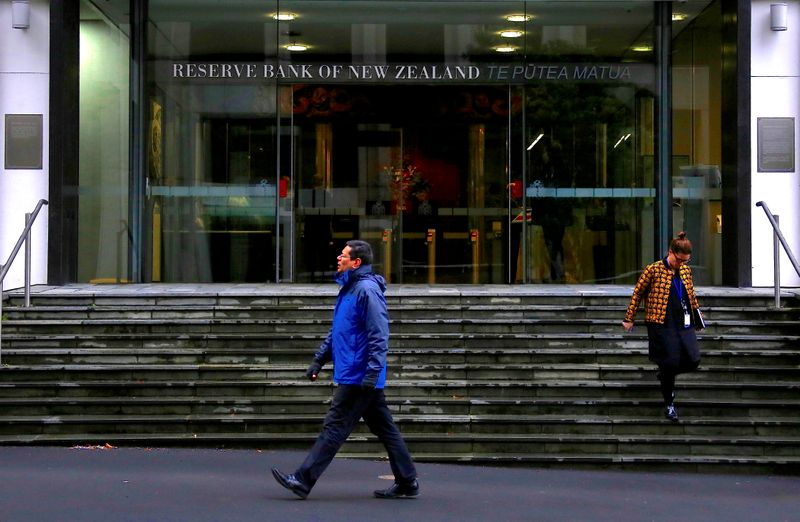WELLINGTON (Reuters) - New Zealand's central bank held interest rates at an all time low on Wednesday, as expected, and signaled no immediate need to adjust monetary policy but room to do so if the coronavirus became a more persistent threat to economic growth.
At its first meeting of the year, the Reserve Bank of New Zealand (RBNZ) held the official cash rate (OCR) at 1.0%, taking comfort from a stabilizing economy after its 75 basis points of easing last year.
While the central bank flagged coronavirus risks, more upbeat comments about employment and consumer prices bolstered expectations it may not need to cut rates this year, which helped the New Zealand dollar climb 0.5% to $0.6440.
All economists polled by Reuters had tipped a hold in policy given domestic risks had receded but said the big unknown would be the hit from the coronavirus epidemic.
RBNZ said the overall economic effects of the outbreak in New Zealand would be of a short duration, with most of the impact likely in the first half of 2020.
"Nevertheless, some sectors are being significantly affected," RBNZ's monetary policy committee said in a statement accompanying the rates decision. "There is a risk that the impact will be larger and more persistent. Monetary policy has time to adjust if needed as more information becomes available."
Widespread global travel and work restrictions due to the coronavirus, which has so far killed more than 1,000 people and sparked a global health emergency, are putting the squeeze on New Zealand firms doing business in the world's second-biggest economy.
Meat, dairy, timber and seafood exporters in New Zealand have faced cancellations in China, which is its single-biggest export market.
New Zealand's Prime Minister Jacinda Ardern said on Monday that the coronavirus epidemic would have an inevitable impact on economic growth.
RBNZ said in its statement that economic growth is expected to accelerate over the second half of 2020 driven by monetary and fiscal stimulus, and the high terms of trade.
However, soft momentum in economic growth has continued into early 2020, it said.
"Overall, it looks like the RBNZ expects to keep the OCR on hold this year, unless coronavirus blows up into something severe for New Zealand," said Westpac New Zealand Chief Economist Dominick Stephens.
Australia's central bank held its cash rate last week and sounded doggedly optimistic even as markets bet devastating bushfires at home and China's virus would force aggressive easing.
The RBNZ's 75 basis point rate cuts last year helped it inch closer to its dual mandate of lifting inflation and increasing employment. Inflation in the previous quarter rose closer to the 2% midpoint of RBNZ's 1-3% target range, while the unemployment rate dropped.
Westpac has said New Zealand's first quarter gross domestic product would be 0.6 percentage points lower than previously thought due to the impact of the coronavirus, assuming a two month ban on travel and one month of disruption in China’s factories.

New Zealand's economy grew at a slightly below-expected 2.9% annual rate last year, as demand was partly hurt by the Sino-U.S. trade war.